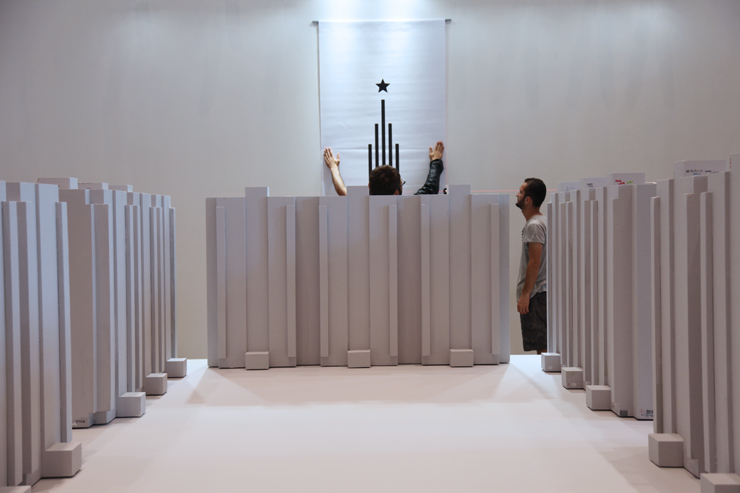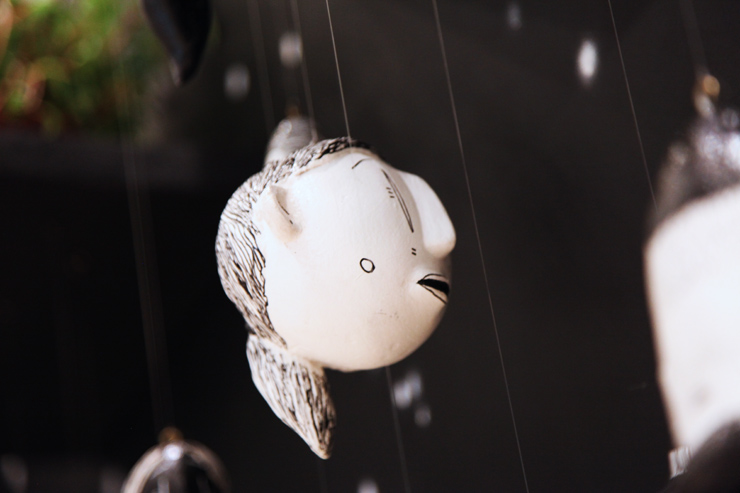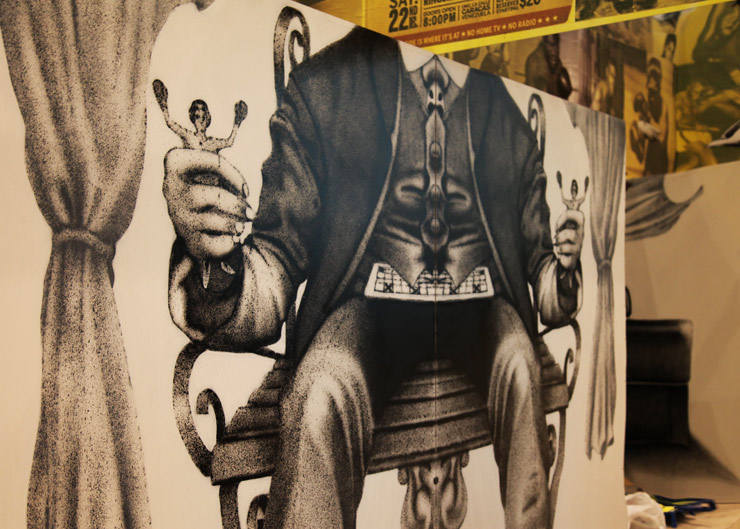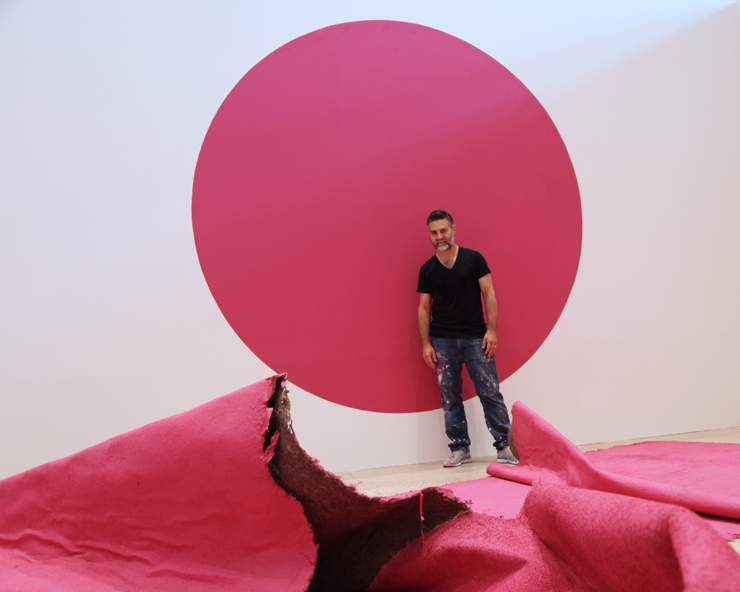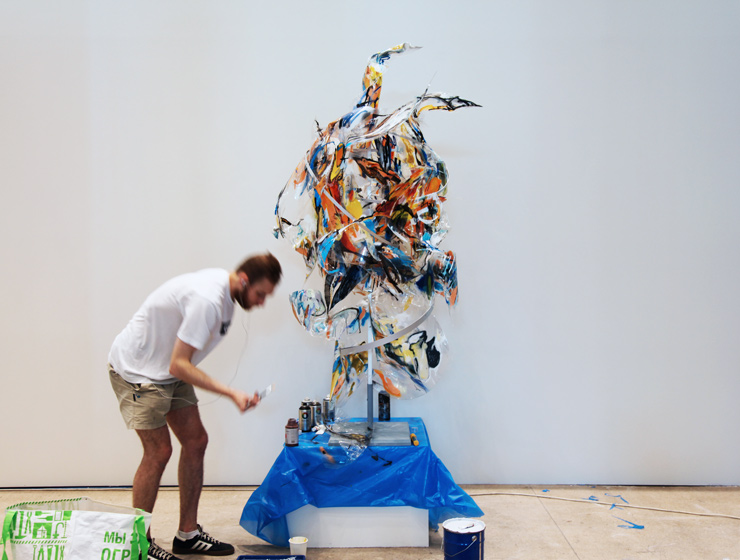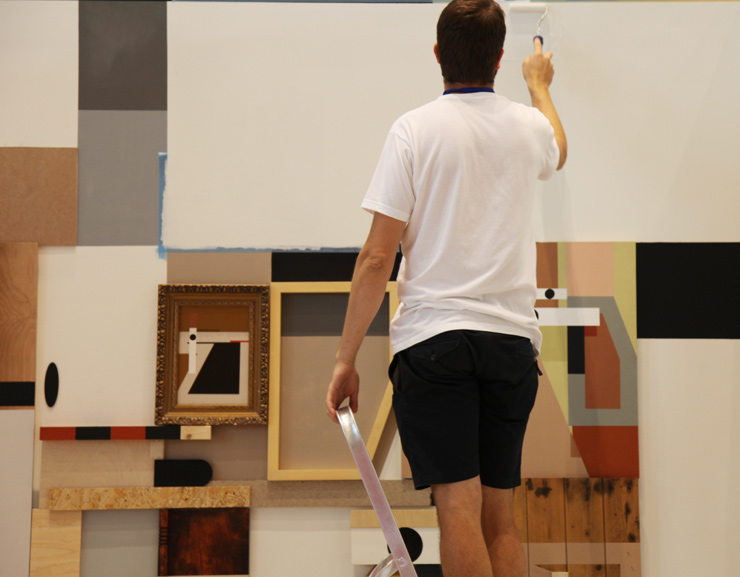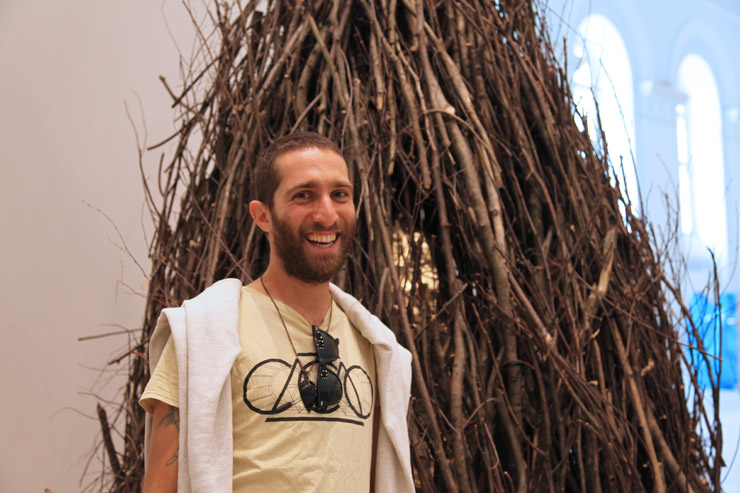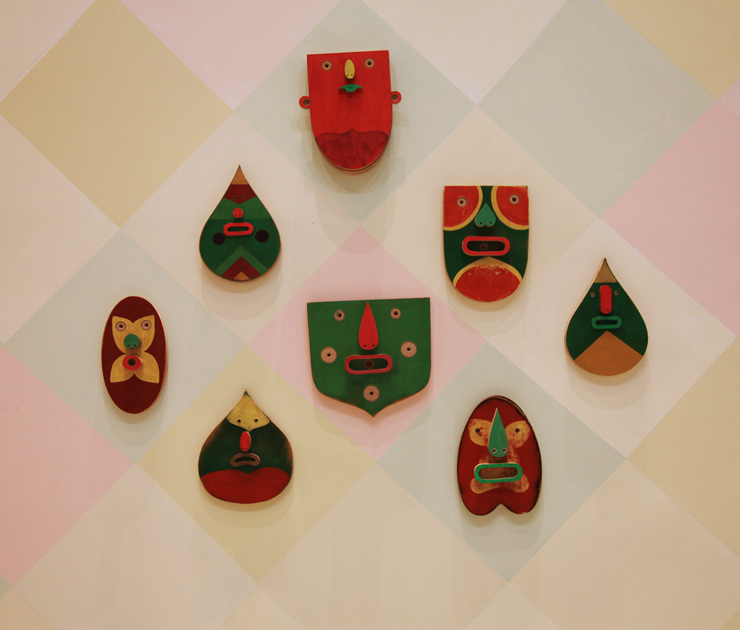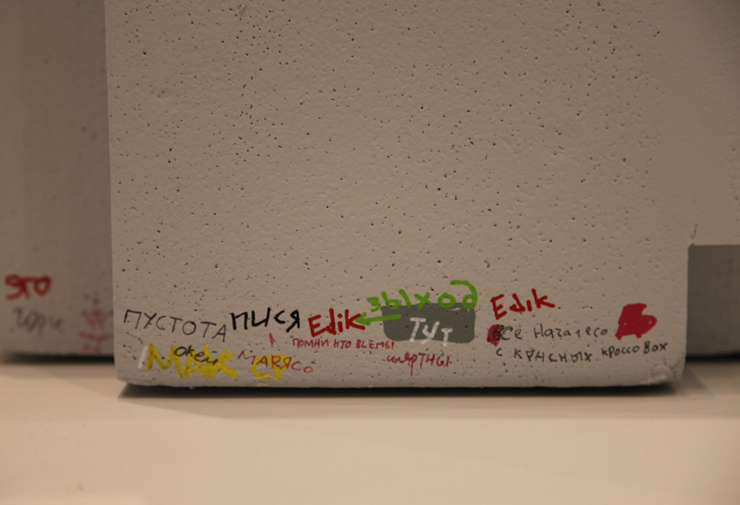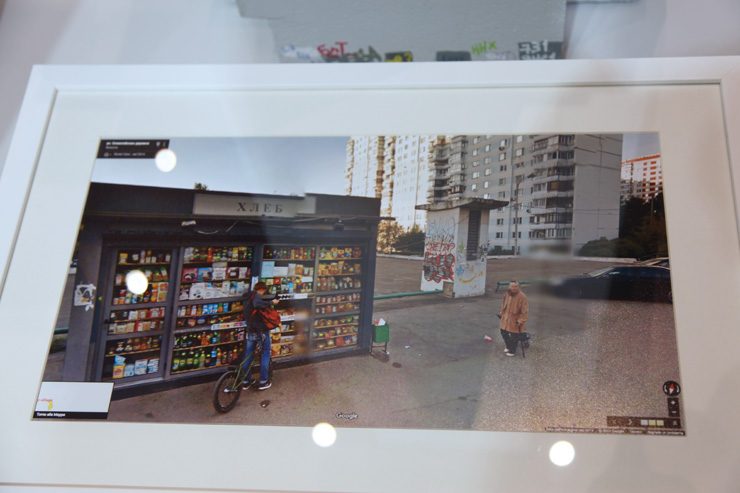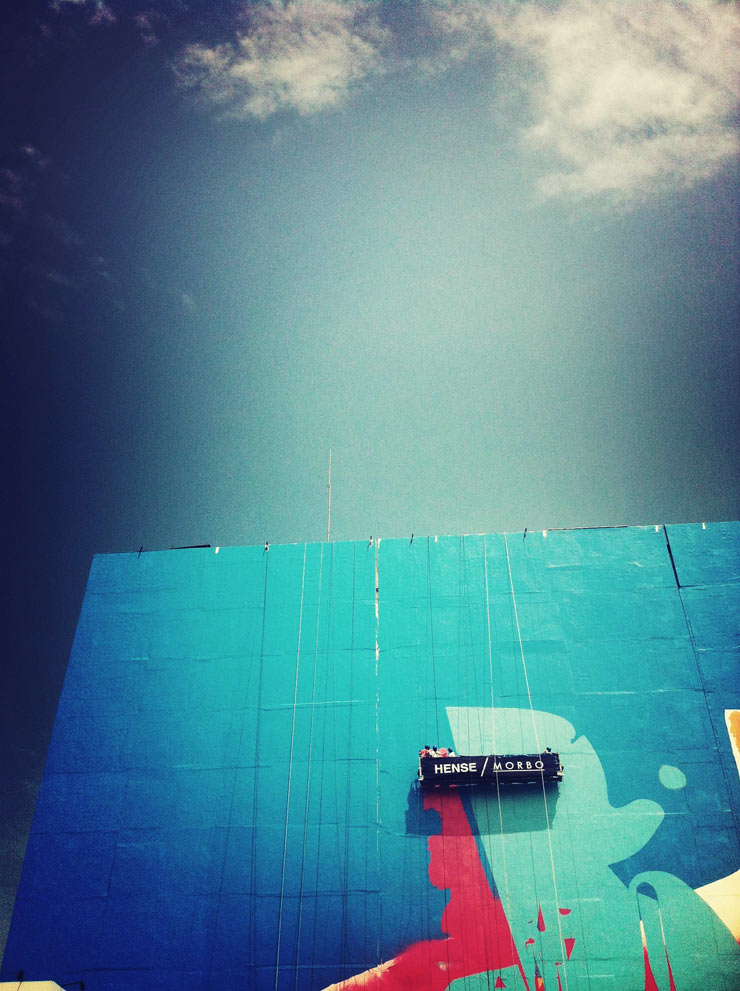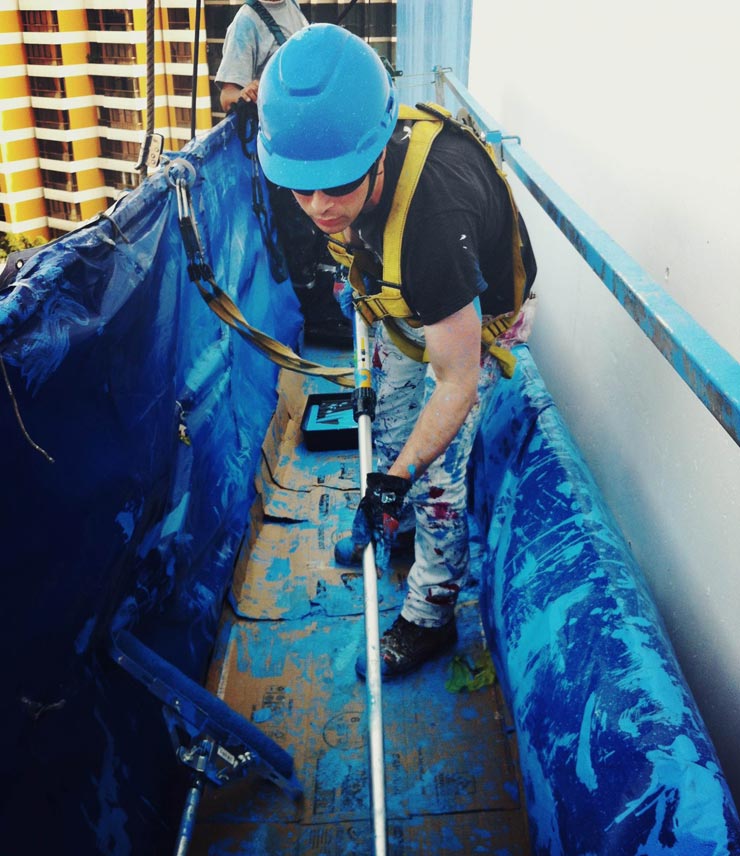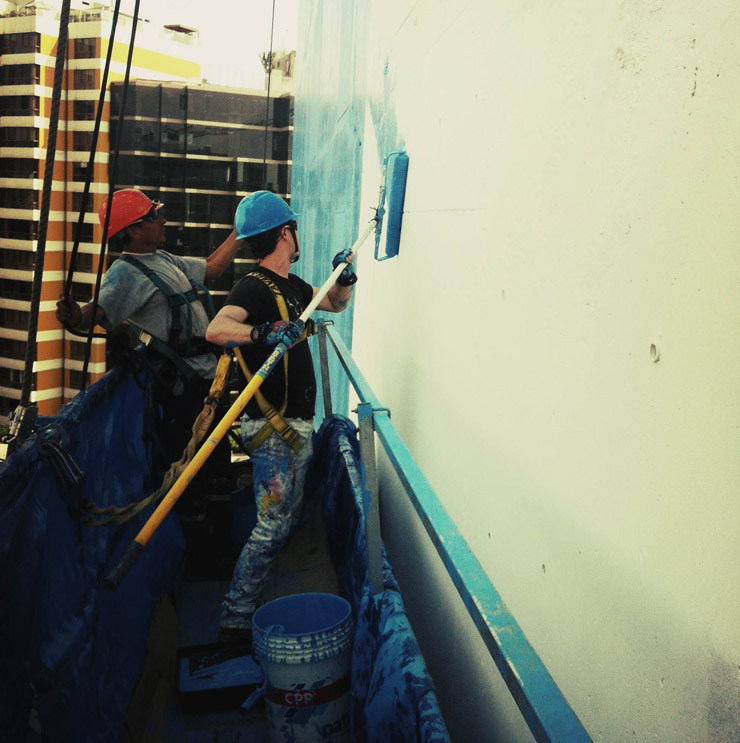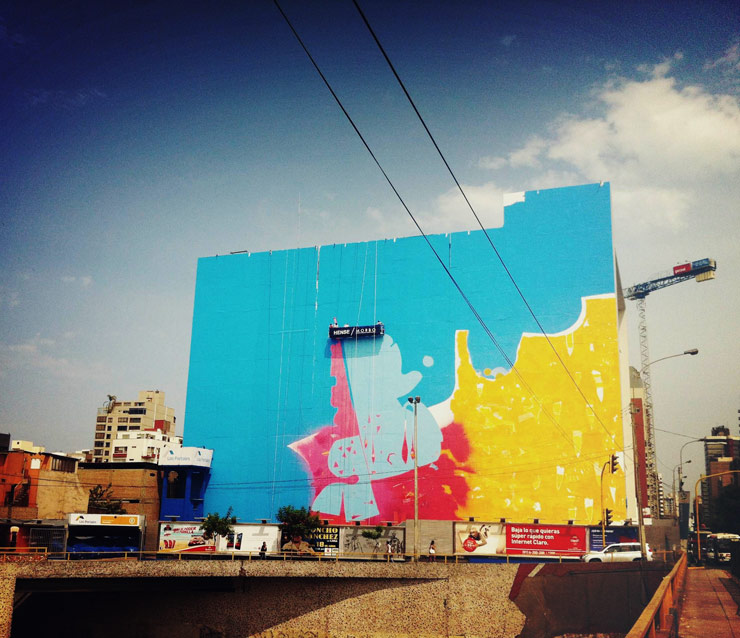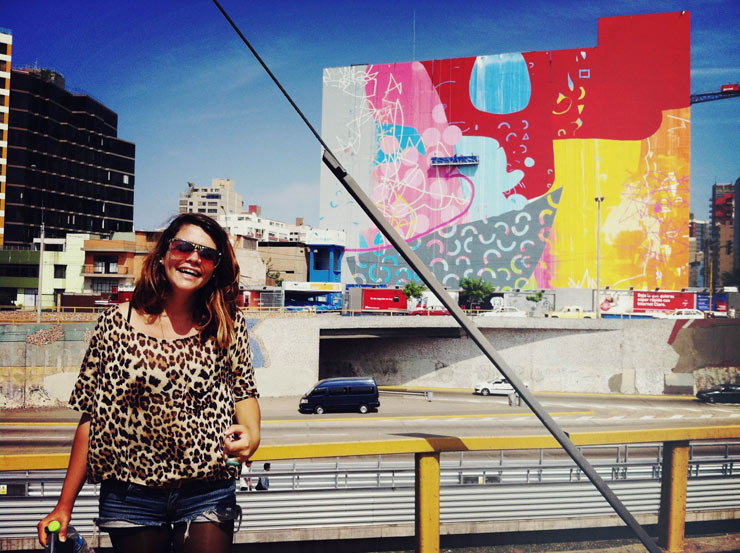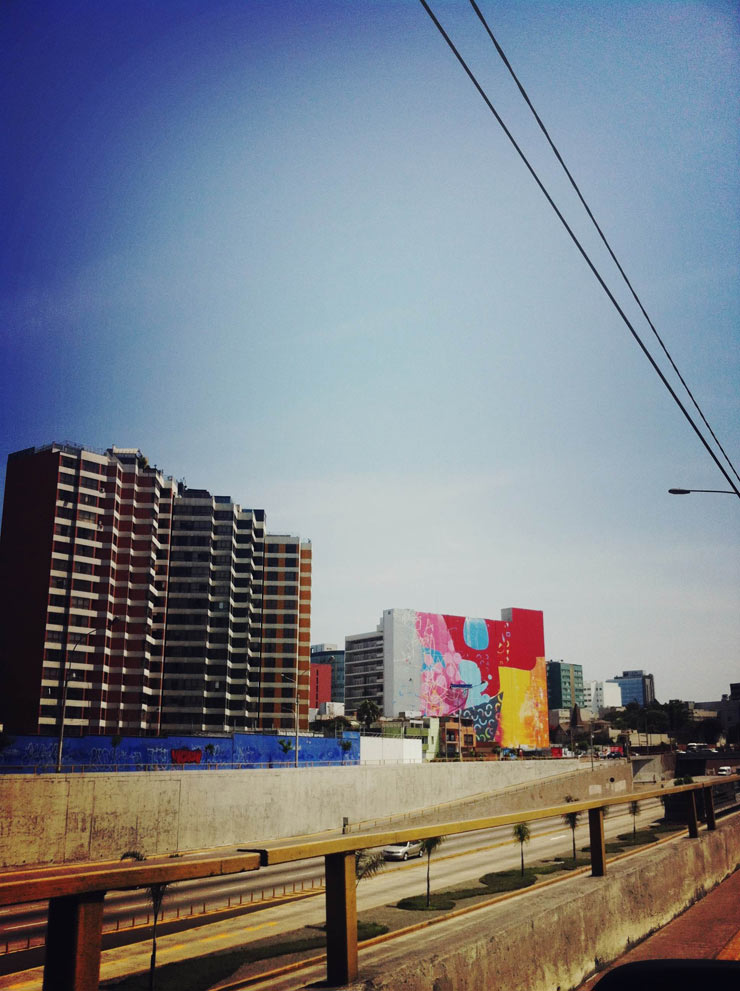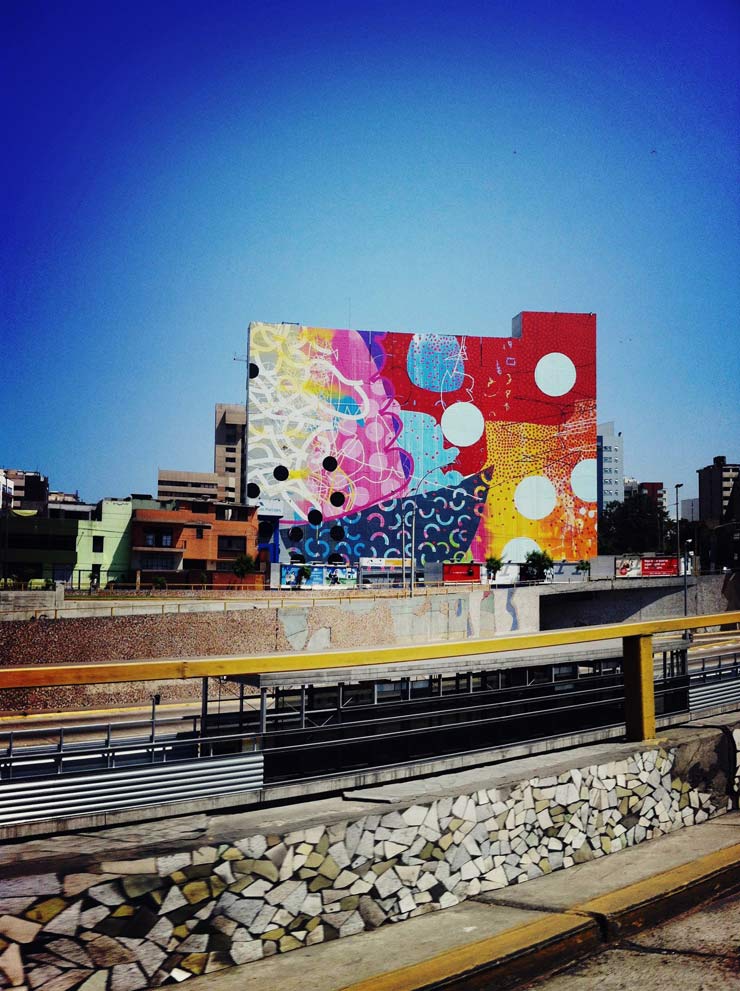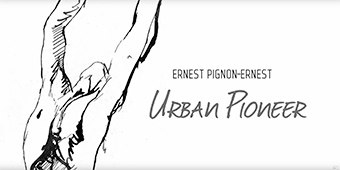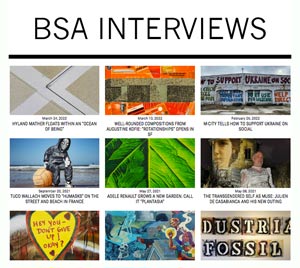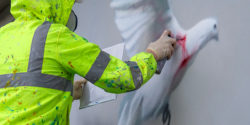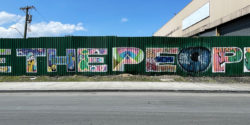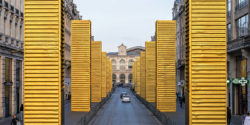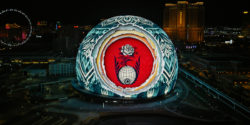This week BSA is in Moscow with you and Urban Nation for Artmossphere 2016, the 2nd Street Art Biennale, a group exposition introducing 26 Russian and 42 foreign artists who were shaped by street art in some way. Also present are international curators, museums and galleries who have significantly intersected with urban art in recent years.
A few more hours until the opening of the Artmossphere Biennale and we have seen many very successful installations – from the aesthetic to the conceptual, painterly to the sculptural, pure joy and pure politics.
Brazil’s Paulo Ito recreated a comedic industrial-looking street scene over come by the mythical powers of the can-wielding graffiti writer. Moscow International Biennale of Street Art. (photo © Jaime Rojo)
In a word, when Street Art and graffiti artists pass the precipice into a multi-disciplinary exhibition such as this, one realizes that this scene has become an important tributary to contemporary art – and one with staying power that very well may re-direct the flow.
Perhaps the street practice is just a training ground for some or these artistss, a formative touchstone for others. It’s up to you to divine what the through-line is among these pieces, as diverse as the collection is. We think that there is a certain defiance present in many works, and a healthy skepticism toward existing hierarchical structures, but that’s just us projecting perhaps.
Alex Sena. Moscow International Biennale of Street Art. (photo © Jaime Rojo)
Claudio Ethos. Moscow International Biennale of Street Art. (photo © Jaime Rojo)
Remi Rough is known for his smartly soaring abstract geometry in painted murals and smaller scale works, and for Artmossphere he wanted to strip his typical practice back to the basics, approaching a white box with one undulating graphic composition.
“My idea was that Moscow’s a bit ‘over the top’,” he says, and he decided to pare the audacity and go for simplicity, which actually takes courage.
“I said ‘you know what?’ – I want to do something with the cheapest materials that you can possibly get. These two pieces literally cost about 3,000 rubles ($50). It’s felt material, it’s like lambs wool. I think they use it for flooring for construction.”
Remi Rough. Moscow International Biennale of Street Art. (photo © Jaime Rojo)
“I wanted to do something peaceful and calming and to use natural materials – something that’s different from what I usually do – but I use the folds in the fabric and the pink color – two things that I usually use a lot.”
And the crisply painted pink dot? “The circle takes it back to the wall and takes it back to the kind of perfection that I like to get. I love the imperfection of the fabric as well – I love the rough edges – a kind of counter-perfection. For me this interpretation of my own work was quite freestyle.”
Misha Buryj. Moscow International Biennale of Street Art. (photo © Jaime Rojo)
Moscow’s Alexey Luka is also challenging himself to stretch creatively by taking his wall collage installations of found wood and converting them into free-standing sculptures.
“For this biennale I tried to make something different so now I am going from the assemblages to 3-D.”
Alexey Luka. Moscow International Biennale of Street Art. (photo © Jaime Rojo)
“My work is made from found wood – I use what I find on the street and with my shapes and my graphics – so it’s kind of an experiment with three dimensions,” and he says most of this wood is sourced here in Moscow. We watch him completing his singular wall piece and notice that he has painted many eyes into the composition.
“In the 2-D piece I try to combine very simple geometric shapes with the eyes and make a huge composition on the wall.” Perhaps these eyes are Muscovites?
“They are just like observers,” he says.
Hot Tea. Moscow International Biennale of Street Art. (photo © Jaime Rojo)
Minneapolis-based artist Hot Tea usually does huge colorful yarn installations that transform public space, but for the biennale he is taking the conceptual route. The walk-in room is based on the Whack-A-Mole game. With white fabric stretched wall to wall at chest level within the cube, meter-wide holes are cut which a visitor can crouch under and rise above.
Visitors/participants will experience the physical separation of space, and perhaps contemplate facing one another or ignoring each other – with absolutely no other visual distraction. It is something he says he hopes will draw attention to how many walls we have allowed ourselves to distract us from human interactions.
Gola. Moscow International Biennale of Street Art. (photo © Jaime Rojo)
Spiritual, scientific, and environmental topics are often intertwined in the works of Italy’s Gola, who has bundled Moscow branches and buried something glowing and golden within them.
These days, he’s being a bit more formal in his approach. “Now I’m trying to go in a kind of didactic way always – a little bit more more environmental stuff. Yes, I think it’s important.”
Finok. Moscow International Biennale of Street Art. (photo © Jaime Rojo)
Mimmo RubKandy. Moscow International Biennale of Street Art. (photo © Jaime Rojo)
Torino’s Mimmo RubKandy recreated the Moscow Olympic village from 1980, now a home for hundreds of families, and a hip-hop graffiti scene as well. The soaring towers are painted in scale with tiny graffiti tags, throwies, extinguisher tags, and the like – at the base and on the the roofs.
Curator Christian Omodeo tells us that these are taken directly from the artists investigations of the site as it exists today. It is striking that the scale reduces the impact of the graffiti – yet when experienced at eye-level it has a potency. Accompanying the towers are framed photos of the current site via Google images, including blurred faces and logos.
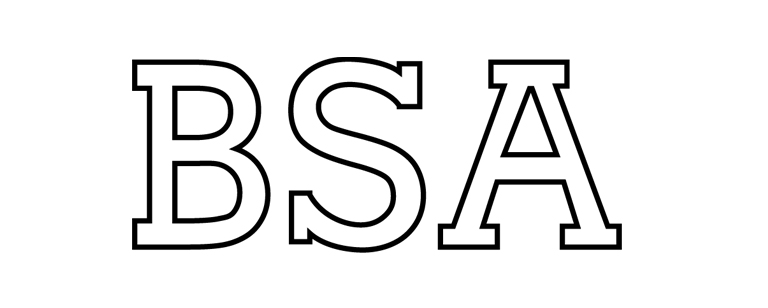 BROOKLYN STREET ART LOVES YOU MORE EVERY DAY
BROOKLYN STREET ART LOVES YOU MORE EVERY DAY